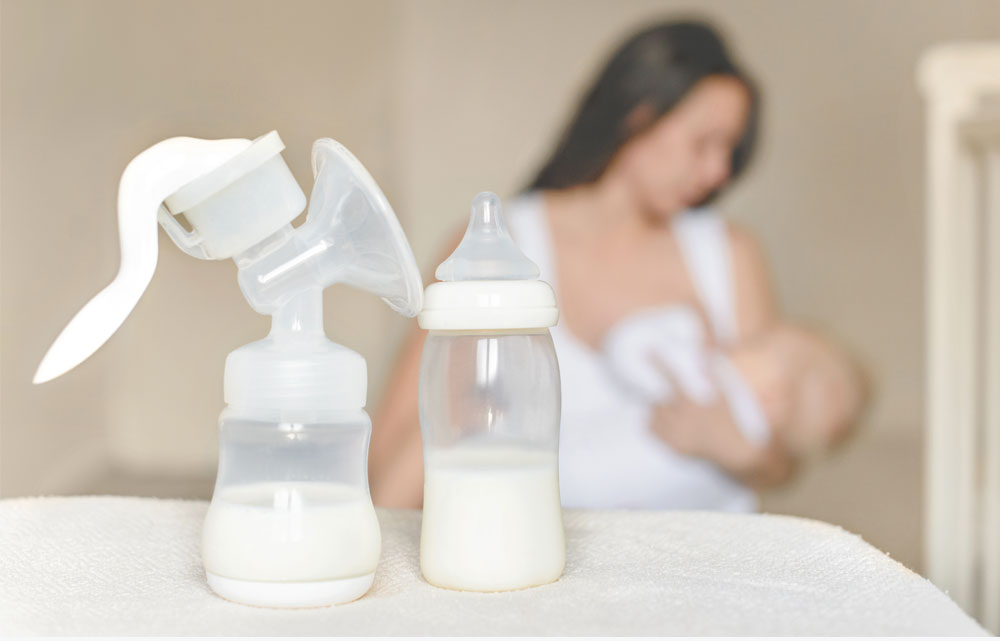
BREAST IS BEST
As parents, our deepest instinct is a yearning for our children to thrive. We want our children to be healthy.
For most new parents, feeding can be a source of anxiety. Will I be able to breastfeed? Is my baby eating enough? Do I want to breastfeed? What is in my breastmilk?
Parents who are well educated about age and developmentally appropriate childhood nutrition can have a dramatic impact on their children’s health, well-being, and relationship with food.


When it comes to nutrition, the first 3 years of your child’s life are particularly important. This significant window can influence good eating habits, lifelong health, and even life span.
The American Academy of Pediatrics (AAP), with support from UNICEF and the World Health Organization (WHO), recommends exclusive breastfeeding for the first 6 months, then breastfeeding in combination with solid foods through at least 12 months, and then continue for as long as mutually desired by mother and child.
When it comes to nutrition, the first 3 years of your child’s life are particularly important. This significant window can influence good eating habits, lifelong health, and even life span.
The American Academy of Pediatrics (AAP), with support from UNICEF and the World Health Organization (WHO), recommends exclusive breastfeeding for the first 6 months, then breastfeeding in combination with solid foods through at least 12 months, and then continue for as long as mutually desired by mother and child.

A good breastfeeding relationship takes time and is a learned experience for both you and your baby. I believe readiness is extremely important. Though some women ultimately are not able to breastfeed, many who think they cannot, actually are able to breastfeed. Lactation consultants are able to provide support to women learning and have goals to breastfeed.
I believe there are 4 important factors to successfully breastfeed your baby…
Confidence in the process of breastfeeding
Confidence in the ability to breastfeed
Commitment to making breastfeeding work despite obstacles
Good and EARLY support!
Spouse family, friends, and a knowledgeable/ encouraging lactation consultant!
References
American Academy of Pediatrics. Breastfeeding. American Academy of Pediatrics. https://www.aap.org/en-us/advocacy-and-policy/aap-health-initiative/breastfeeding/pages/default.aspx. Published 2020. Accessed April 27, 2020.
American Academy of Pediatrics. Policy Statement: Breastfeeding and the Use of Human Milk. Pediatrics. 2012: 128(3): e827-e841
World Health Organization. Breastfeeding and Family Friendly Policies: Advocacy Brief. World Health Organization. https://www.who.int/publications-detail/WHO-NMH-NHD-19.23. Published July 26, 2019. Accessed April 27, 2020.
United Nations Children’s Fund (UNICEF). The Cost of Not Breastfeeding. UNICEF. https://www.unicefusa.org/stories/cost-not-breastfeeding/36187. Published August 1, 2019. Accessed April 27, 2020.
United Nations Children’s Fund (UNICEF). Nutrition and Breastfeeding. UNICEF. https://www.unicefusa.org/press/releases/improving-early-childhood-nutrition-can-save-lives-one-million-children-year/8149. Published July 29, 2015. Accessed April 27, 2020.
